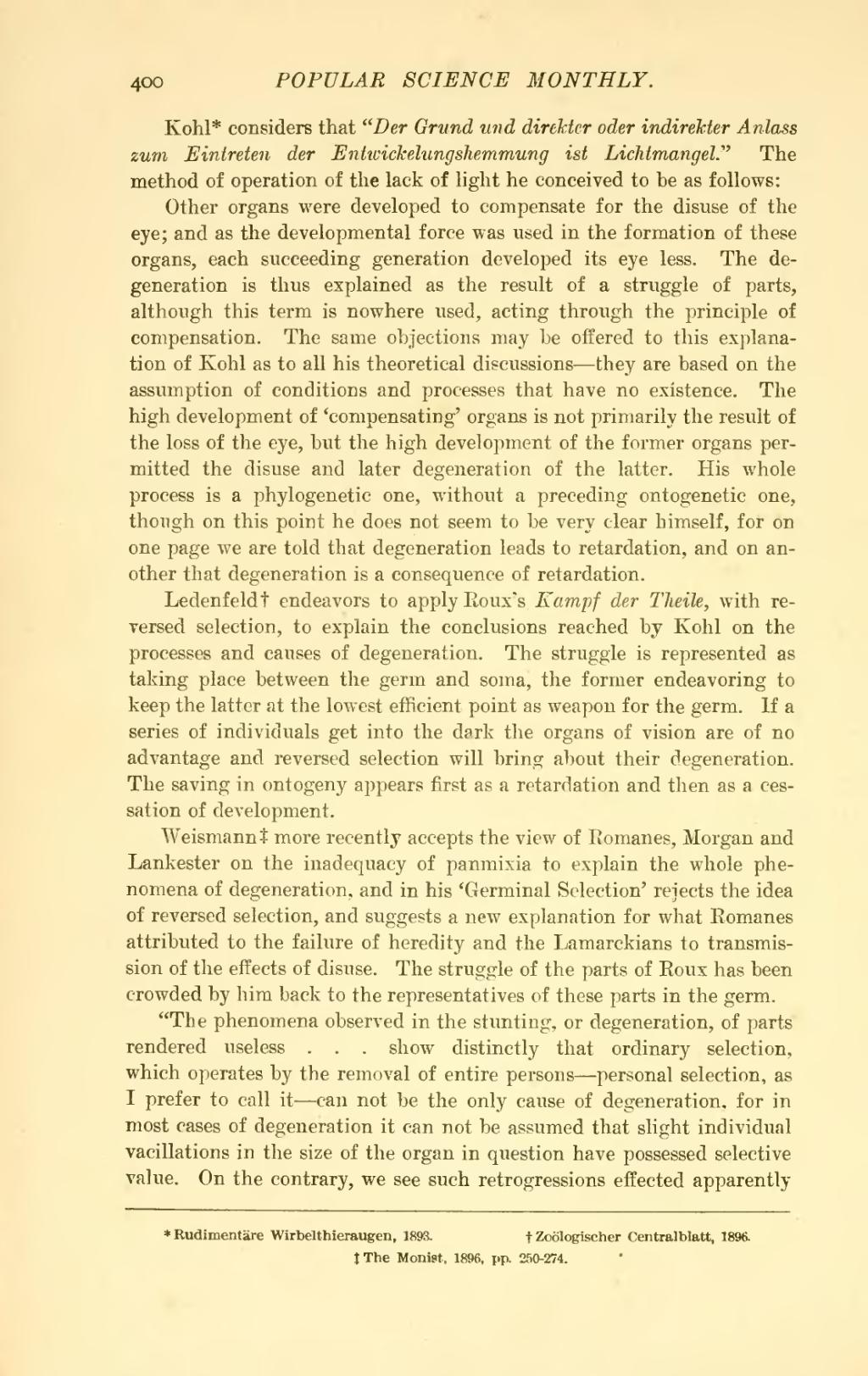Kohl[1] considers that "Der Grund und direkter oder indirekter Anlass zum Eintreten der Entivickelungshemmung ist Lichtmangel." The method of operation of the lack of light he conceived to be as follows:
Other organs were developed to compensate for the disuse of the eye; and as the developmental force was used in the formation of these organs, each succeeding generation developed its eye less. The degeneration is thus explained as the result of a struggle of parts, although this term is nowhere used, acting through the principle of compensation. The same objections may be offered to this explanation of Kohl as to all his theoretical discussions—they are based on the assumption of conditions and processes that have no existence. The high development of 'compensating' organs is not primarily the result of the loss of the eye, but the high development of the former organs permitted the disuse and later degeneration of the latter. His whole process is a phylogenetic one, without a preceding ontogenetic one, though on this point he does not seem to be very clear himself, for on one page we are told that degeneration leads to retardation, and on another that degeneration is a consequence of retardation.
Ledenfeldt[2] endeavors to apply Roux's Kampf der Theile, with reversed selection, to explain the conclusions reached by Kohl on the processes and causes of degeneration. The struggle is represented as taking place between the germ and soma, the former endeavoring to keep the latter at the lowest efficient point as weapon for the germ. If a series of individuals get into the dark the organs of vision are of no advantage and reversed selection will bring about their degeneration. The saving in ontogeny appears first as a retardation and then as a cessation of development.
Weismann[3] more recently accepts the view of Romanes, Morgan and Lankester on the inadequacy of panmixia to explain the whole phenomena of degeneration, and in his 'Germinal Selection' rejects the idea of reversed selection, and suggests a new explanation for what Romanes attributed to the failure of heredity and the Lamarckians to transmission of the effects of disuse. The struggle of the parts of Roux has been crowded by him back to the representatives of these parts in the germ.
"The phenomena observed in the stunting, or degeneration, of parts rendered useless. . . show distinctly that ordinary selection, which operates by the removal of entire persons—personal selection, as I prefer to call it—can not be the only cause of degeneration, for in most cases of degeneration it can not be assumed that slight individual vacillations in the size of the organ in question have possessed selective value. On the contrary, we see such retrogressions effected apparently

